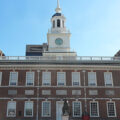By Wendell P. Simpson
Last week, one of jazz’s most innovative and daring voices passed into that good night. Abbey Lincoln, singer, actress and activist, died on August 14 died last Saturday in Manhattan. She was 80 years old.
I rue her passing not just because we’ve lost a musical giant possessed of a unique voice but in this age of mediocre talent filtered through computer apps, reality show bimbo-ism as the ultimate aspiration and a celebrity sensibility where social consciousness boils down to the next Third World baby as newest fashion accessory, we are left bereft of real virtue in art anymore.
Lincoln’s passing represents not only the loss of a passionate, articulate voice, but the end of an era when virtuosity, truth and dignity were as important to the art as it’s rendering.
Known for her impeccable phrasing, soaring vocal command and stirring lyrical and melodic interpretations, Lincoln kept it real through her repertoire of songs and material always rich in metaphor and understated philosophical musings. Her ability to wrap herself inside the meaning and spirit of the song drew comparisons to her idol, the great Billie Holiday.
Born Anna Marie Wooldridge on August 6, 1930 in Chicago, Lincoln stood out among her 11 sibling as a natural musical talent. As a precocious child, she taught herself to play several instruments, including the piano.
As teenager, the young singer landed a gig in Honolulu which availed her an opportunity to share a bill with her idol Holiday and innovator Louis Armstrong. A string of gigs in Los Angeles followed that illustrious turn as Lincoln’s career began to take off.
It wasn’t long before Hollywood discovered the singing beauty. She was cast in a cameo in the Jane Mansfield vehicle, ‘The Girl Can’t Help It.’ The role begun a string of movie cameos in which Lincoln came to be type cast as seductress, a kind of sepia Marilyn Monroe.
It wasn’t long, however, before Lincoln moved beyond the confines of those roles. She developed a musical collaboration with (and, later, marriage to) bop master Max Roach. It was during this critical period of exploratory musical extrapolations that Lincoln also found her muse as a social activist which resulted in endearing works of protest and defiance.
During the sixties, Lincoln continued to land movie roles—this time of a different, more socially conscious stripe—including one with Sidney Poitier.
In the 1990s, Lincoln’s career saw a revitalization. It was during this interlude that the multifaceted Ms, Lincoln began to perform her own compositions and enjoy collaborations with players like Stan Getz.
Musicians talked fondly of Abbey Lincoln’s legacy.
“I’ve never had the pleasure of working with Ms. Lincoln, but no one is music can deny the profound influence she had one generation of singers that followed. We are all richer for having had Ms. Lincoln, not only as a musical influence, but as a great example of humanity as well,” said Philly jazz legend Denise King from her gig in Paris.
Brad Johnson, a Florida session guitarist who’s worked with the likes of Steve Arrington and War, has nothing but praise for Ms. Lincoln’s contributions. “It’s a sad day,” said Johnson. “I’ve worked with a lot of singers in my time, and more than a few mentioned Abbey Lincoln, along with Billie Holiday and Sarah Vaughn, as influences. She will forever be among the pantheon of the greats. Rest in peace, Abbey Lincoln.”
“I’m a rock and roll guy,” said guitarist Jeffery Blum, “But my parents had a collection of old jazz records they used to play endlessly. I remember a few of them were Abbey Lincoln records. Me and my little brother would rumble around the house, making fun of this music, calling it ‘old-timey’ and things, and my Dad would say, ‘One day you’ll appreciate this music.’ He was right. Once I began to play music seriously, I found myself scrambling through my parents’ attic in a frantic search for that stuff. Who knew? Well, my Dad did. They don’t make music—or personalities—like Abbey Lincoln anymore, that’s for damn sure.”
















Leave a Comment